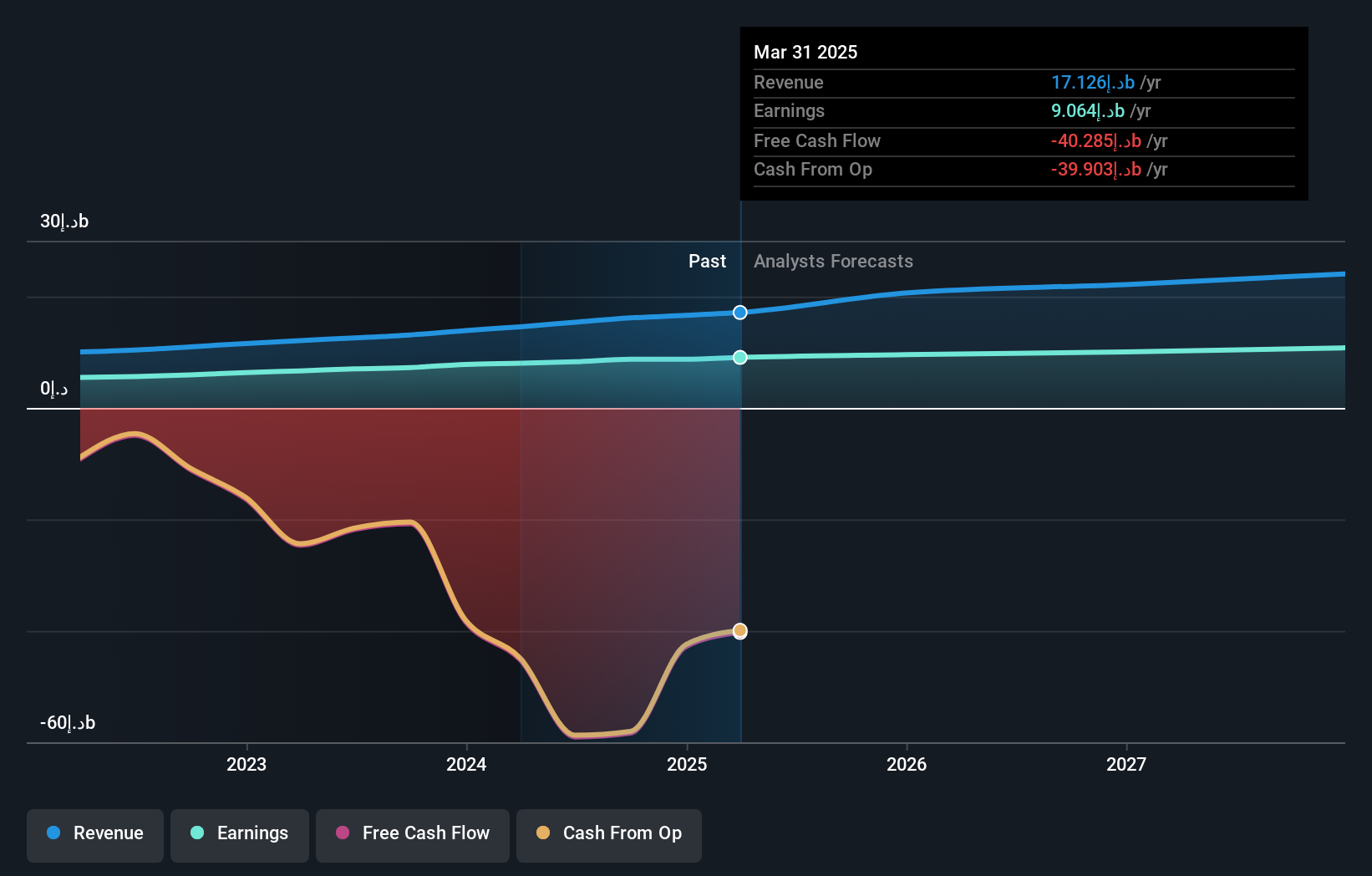Abu Dhabi Commercial Bank PJSC (ADX:ADCB) stock most popular amongst sovereign wealth funds who own 60%, while individual investors hold 31%
Key Insights
- The considerable ownership by sovereign wealth funds in Abu Dhabi Commercial Bank PJSC indicates that they collectively have a greater say in management and business strategy
- 60% of the company is held by a single shareholder (Mubadala Investment Company PJSC)
- Analyst forecasts along with ownership data serve to give a strong idea about prospects for a business
A look at the shareholders of Abu Dhabi Commercial Bank PJSC (ADX:ADCB) can tell us which group is most powerful. The group holding the most number of shares in the company, around 60% to be precise, is sovereign wealth funds. That is, the group stands to benefit the most if the stock rises (or lose the most if there is a downturn).
And individual investors on the other hand have a 31% ownership in the company.
In the chart below, we zoom in on the different ownership groups of Abu Dhabi Commercial Bank PJSC.
Check out our latest analysis for Abu Dhabi Commercial Bank PJSC

What Does The Institutional Ownership Tell Us About Abu Dhabi Commercial Bank PJSC?
Institutional investors commonly compare their own returns to the returns of a commonly followed index. So they generally do consider buying larger companies that are included in the relevant benchmark index.
We can see that Abu Dhabi Commercial Bank PJSC does have institutional investors; and they hold a good portion of the company's stock. This can indicate that the company has a certain degree of credibility in the investment community. However, it is best to be wary of relying on the supposed validation that comes with institutional investors. They too, get it wrong sometimes. If multiple institutions change their view on a stock at the same time, you could see the share price drop fast. It's therefore worth looking at Abu Dhabi Commercial Bank PJSC's earnings history below. Of course, the future is what really matters.

Hedge funds don't have many shares in Abu Dhabi Commercial Bank PJSC. Our data shows that Mubadala Investment Company PJSC is the largest shareholder with 60% of shares outstanding. This implies that they have majority interest control of the future of the company. Meanwhile, the second and third largest shareholders, hold 1.7% and 1.4%, of the shares outstanding, respectively.
While it makes sense to study institutional ownership data for a company, it also makes sense to study analyst sentiments to know which way the wind is blowing. There are a reasonable number of analysts covering the stock, so it might be useful to find out their aggregate view on the future.
Insider Ownership Of Abu Dhabi Commercial Bank PJSC
The definition of company insiders can be subjective and does vary between jurisdictions. Our data reflects individual insiders, capturing board members at the very least. The company management answer to the board and the latter should represent the interests of shareholders. Notably, sometimes top-level managers are on the board themselves.
Most consider insider ownership a positive because it can indicate the board is well aligned with other shareholders. However, on some occasions too much power is concentrated within this group.
Our data suggests that insiders own under 1% of Abu Dhabi Commercial Bank PJSC in their own names. As it is a large company, we'd only expect insiders to own a small percentage of it. But it's worth noting that they own د.إ144m worth of shares. Arguably recent buying and selling is just as important to consider. You can click here to see if insiders have been buying or selling.
General Public Ownership
With a 31% ownership, the general public, mostly comprising of individual investors, have some degree of sway over Abu Dhabi Commercial Bank PJSC. While this group can't necessarily call the shots, it can certainly have a real influence on how the company is run.
Next Steps:
It's always worth thinking about the different groups who own shares in a company. But to understand Abu Dhabi Commercial Bank PJSC better, we need to consider many other factors. Take risks for example - Abu Dhabi Commercial Bank PJSC has 1 warning sign we think you should be aware of.
Ultimately the future is most important. You can access this free report on analyst forecasts for the company.
NB: Figures in this article are calculated using data from the last twelve months, which refer to the 12-month period ending on the last date of the month the financial statement is dated. This may not be consistent with full year annual report figures.
Have feedback on this article? Concerned about the content? Get in touch with us directly. Alternatively, email editorial-team (at) simplywallst.com.
This article by Simply Wall St is general in nature. We provide commentary based on historical data and analyst forecasts only using an unbiased methodology and our articles are not intended to be financial advice. It does not constitute a recommendation to buy or sell any stock, and does not take account of your objectives, or your financial situation. We aim to bring you long-term focused analysis driven by fundamental data. Note that our analysis may not factor in the latest price-sensitive company announcements or qualitative material. Simply Wall St has no position in any stocks mentioned.
 Wall Street Journal
Wall Street Journal